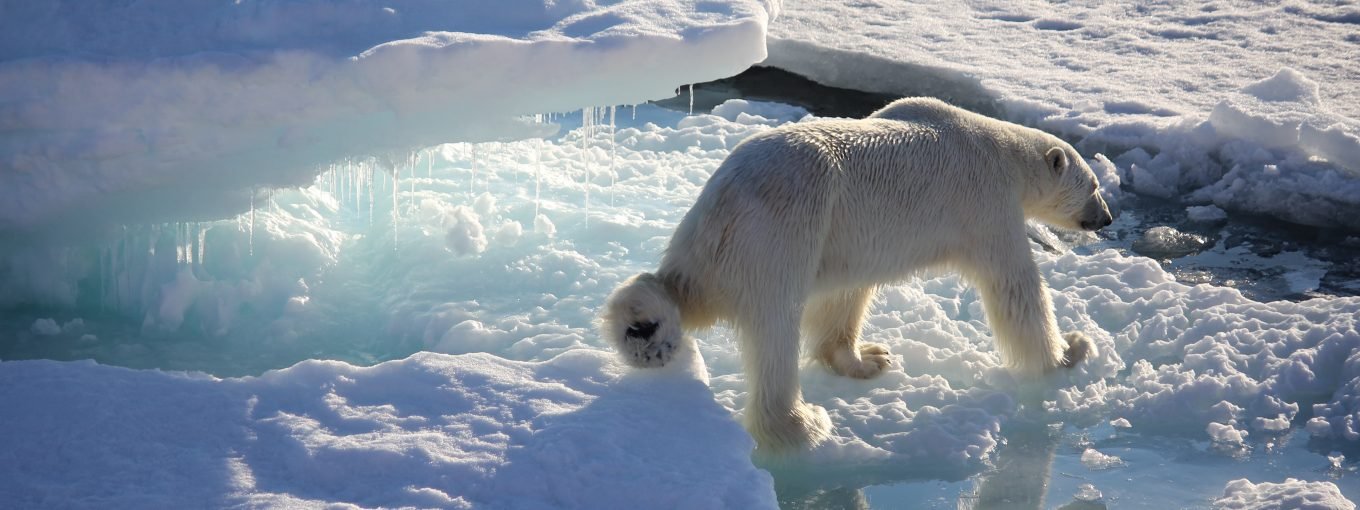The outreach activities are designed to communicate the Programme’s science to the public. These activities are carried out by the project scientists, technicians and PhD students. They range from public talks at nationwide events such as Pint of Science, to the production of educational materials for school children, and online blogs. More details can be found in the Calendar of Events. Please also see the Arctic Links page for educational websites with an Arctic focus.
Glasgow Science Centre
CAO investigators will take part in “Meet the Expert” events held at the Glasgow Science Centre. These will be organised before and after some of the scientific cruises to highlight the extreme conditions under which scientific research takes place in the Arctic.
On a related theme, the Glasgow Science Centre will host an “Extreme Laboratories” display. This will feature some of the working conditions Arctic scientists experience while on research cruises in the Arctic Ocean.
An interactive exhibit about “Warming in the Arctic” will be developed at the Glasgow Science Centre to illustrate the effect of greenhouse gases in warming the Arctic and the impact of this on ecosystem function. This will form part of the larger “EnvironScience” gallery that will showcase some of the science in the Programme.
Dates for these events will be confirmed here and on the Glasgow Science Centre website.
Ocean Explorer Centre, Scottish Association for Marine Science (SAMS), Oban
A number of events and hands-on science displays will be organised at the Ocean Explorer Centre, which is the dedicated visitor centre at SAMS. These will showcase the science being undertaken by the Artic PRIZE and DIAPOD projects.
Details of these will be advertised in due course.
Public talks
A number of public talks are planned through existing local and national programmes that invite scientists to speak to the public about their research in environments outside of universities. These include Café Scientifique where talks are organised in cafes and bars, and Pint of Science that usually takes place in local pubs. The Royal Society Summer Science Exhibitions and Soapbox Science are similar organisations that the CAO investigators are planning to give talks at.
The next Pint of Science festival in the UK will take place 14-16 May 2018. Details of talks by scientists in the CAO Programme will be posted here.
Radio documentary
The ChAOS investigators will work with the experienced science journalist, Helen Scales, to produce a radio documentary for the BBC World Service “Discovery” programme. The documentary will focus on how the wider impacts of change in the Arctic are affecting the people and communities that live there.
Broadcasting dates of this programme will be posted here.
Educational posters for GCSE and A-level students
The ARISE investigators are producing three posters to convey understanding of the key concepts in their project, those being “Arctic food webs”, “Stable isotopes in ecology” and “Impact of climate change on Arctic food webs”. The target groups for these posters are school pupils and teachers who would like to know more about how Arctic food webs operate. The posters will be distributed freely to schools registered to take GCSE and A-level Biology and Chemistry and will also be made freely available electronically.
The posters will be available to download from this page.
School visits
The scientists and support staff in the CAO Programme visit schools on a regular basis to talk about the Arctic and the science they carry out there. Some of the more interesting aspects of their talks deal with the unusual living and working conditions on-board a scientific research ship, and the challenges faced when working in one of the world’s harshest environments.
These talks can include demonstrations and a hands-on approach to exploring some of the equipment used to collect samples. The aim is get school children enthusiastic about science and to encourage future generations of polar scientists. The talks can be targeted at a broad range of ages, from nursery to primary and secondary school children.
If you would like to organise a scientist to visit your school and give a talk or demonstration, and you are interested in the science of a specific CAO project, please feel free to contact the lead investigator of that project. Alternatively, for general requests about school visits, please contact Dr Kirsty Crocket, Science Coordinator. We try our best to accommodate the requests we receive for school talks, but this depends on location and the availability of the scientists.








